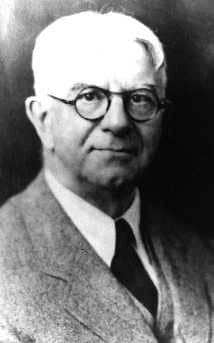Founders of Occupational Therapy: Dr. William Rush Dunton Jr.
Published - April 13, 2017
In honor of National Occupational Therapy Month, CBD College is spotlighting the founders of this integral field. CBD College looks forward to spreading OT awareness this month and every month.
 Dr. William Rush Dunton Jr.
Dr. William Rush Dunton Jr.
Born: July 24, 1868, Chestnut Hill, Philadelphia, PA
Died: 1966, Baltimore, MD
Dr. William Rush Dunton Jr. is known as the “father of OT”. He was a psychiatrist and educator. Dr. Dunton published the first account of the Occupational Therapy profession. He attended Harvard and UPenn medical school. Dunton healed his patients through purposeful activities (known then as daily occupations). In 1917, he was one of several individuals who believed in the healing properties of engaging activity. He witnessed the healing potential of Occupational Therapy with his own clients. Seeing potential in the practice, Dunton published a manual for nurses on how OT should be utilized in 1915. The doctor used quilt making and hooked rugs in his practices. Occupational Therapy textbooks cite his articles. He traced Occupational Therapy back to the philosophical movement.
Over the course of his career, Dr. William Rush Dunton Jr. wrote prolifically about the profession, penning more than 120 books and articles related to occupational therapy. Major works included The Principles of Occupational Therapy (1918), Reconstruction Therapy (1919), and Prescribing Occupational Therapy (1928). He served as assistant editor of the American Journal of Psychiatry, and the editor of Archives of Occupational Therapy. The AOT later became known as Occupational Therapy and Rehabilitation and today published as the American Journal of Occupational Therapy. Dunton served as the first President of the National Society for the Promotion of Occupational Therapy- now the American Occupational Therapy Association. In 1958, American Occupational Therapy Association honored Dunton with the merit award for contributions to understanding the benefits of occupational therapy for mentally ill patients.




